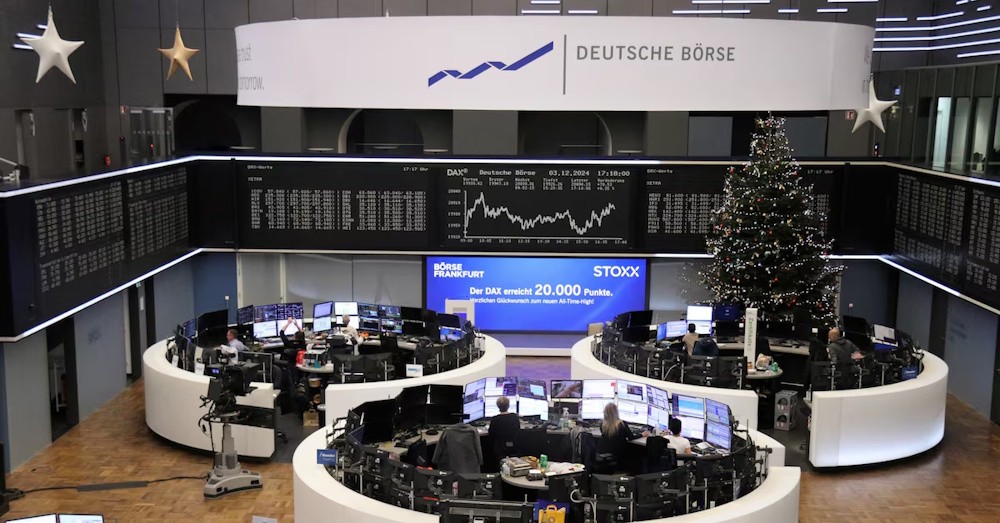
DAX Futures exhibit a subdued performance in cautious trading on Tuesday, influenced by the potential for a US government shutdown and ongoing apprehensions regarding Trump’s tariff threats. The benchmark DAX experienced a decline of 18.91 points, representing a decrease of 0.08%, currently standing at 23,756.22. Market participants are currently analyzing the most recent set of regional economic indicators, which includes a report highlighting an unforeseen decline in retail sales.
The Trump administration has enacted tariffs on imported lumber, as well as kitchen and bathroom furniture constructed from wood, effective October 14, with additional increases scheduled for January 1. Siemens Healthineers, Heidelberg Materials, Siemens Energy, Scout24 SE, Deutsche Bank, Bayer, Brenntag, and Siemens have experienced an increase ranging from 0.5% to 1.1%. Where as –
- MTU Aero Engines is experiencing an increase of approximately 3.1%.
- Commerzbank has experienced an increase of nearly 1.5%.
- E.ON is experiencing a decline of approximately 1.1%.
- Qiagen, Daimler Truck Holding, Mercedes-Benz, BASF, Zalando, Symrise,
Henkel, RWE, and Volkswagen have experienced declines ranging from 0.4% to 1%.
Data indicated an unexpected decline in Germany’s retail sales for August, attributed to a decrease in non-food retailing. Retail sales experienced a monthly decline of 0.2% in August, a moderation from the 0.5% drop recorded in July, according to the data. Sales were projected to increase by 0.6%. Food sales experienced an increase of 0.6%, whereas non-food sales saw a decrease of 1% compared to July. On an annual basis, retail sales growth moderated to 1.8%, down from 2.9% in the preceding month. In nominal terms, retail sales experienced a month-on-month increase of 0.1% and a year-on-year advance of 3.2%.
In August, Germany experienced a year-on-year decline in import prices of 1.5%, succeeding a 1.4% decrease in the preceding month. This represents the fifth consecutive month of declining import prices, reflecting the most significant decrease in the ongoing trend. In August, import prices experienced a monthly decline of 0.5%, a further decrease from the 0.4% drop observed in the preceding month. In September, Germany’s seasonally adjusted unemployment rate remained at 6.3%, aligning with market expectations. This represents the peak level since September 2020, indicating persistent fragility in the labor market.
